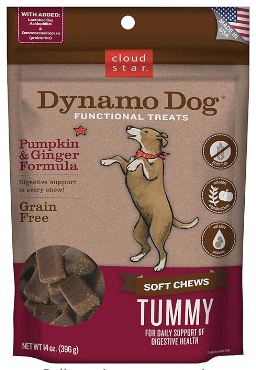Understanding and Addressing Canine Car Sickness
Car rides can be an enjoyable experience for many dogs, but for some, it can be a nauseating ordeal. Canine car sickness is a common issue faced by pet owners, often resulting in anxiety and discomfort for both the dog and the owner. Understanding the causes and implementing effective remedies can significantly improve the travel experience for your furry companion.
What causes car sickness?
1. Inner Ear Imbalance: Dogs, like humans, rely on their inner ear for balance. Motion sickness occurs when the brain receives conflicting signals from the inner ear and eyes, causing nausea and vomiting.
2. Anxiety and Stress: Dogs prone to anxiety may experience heightened stress during car rides, exacerbating feelings of nausea and discomfort.
3. Unfamiliarity with Travel: Puppies and dogs who haven't been acclimated to car rides may feel uneasy due to the unfamiliar sensations and surroundings.
4. Poor Ventilation and Temperature: Stuffy cars with poor ventilation can exacerbate feelings of nausea in dogs.
How do you cure canine car sickness?
1. Gradual Exposure and Positive Reinforcement: Introduce your dog to car rides gradually, starting with short trips to enjoyable destinations like parks or trails. Use treats and praise to associate positive experiences with car travel.
2. Proper Ventilation and Comfort: Ensure your car is well-ventilated and maintain a comfortable temperature for your dog during the ride. Consider using a travel crate or harness to provide stability and security.
3. Limit Food and Water Intake: Avoid feeding your dog a large meal before traveling. Offer small amounts of water to prevent dehydration without overwhelming their stomach.
4. Natural Remedies: Explore natural remedies such as ginger or herbal supplements, known for their anti-nausea properties. Consult with your veterinarian before administering any supplements to your dog.
5. Prescription Medications: In severe cases, your veterinarian may prescribe medications to alleviate symptoms of car sickness. These medications should be used under professional guidance and supervision.
Understanding the causes of canine car sickness and implementing appropriate remedies can transform car rides from a source of anxiety to an enjoyable experience for both you and your furry companion. With patience, positive reinforcement, and proper care, you can help your dog overcome car sickness and embark on new adventures with confidence.
For more information on dog care and wellness, visit the American Kennel Club (AKC) website at www.akc.org.
References
1. American Kennel Club (AKC). "Traveling with Dogs: Car Sickness, Travel Anxiety, and Motion Sickness." Retrieved from: https://www.akc.org/expert-advice/training/traveling-with-dogs-car-sickness-travel-anxiety-and-motion-sickness/
2. PetMD. "How to Help Dogs with Car Anxiety and Motion Sickness." Retrieved from: https://www.petmd.com/dog/behavior/how-help-dogs-car-anxiety-and-motion-sickness
Recommended Products
Product Name:
The Only Hemp Calming Soft Chews
Product Name:
Dynamo Dog Tummy Treats - Probiotics Support for Dogs





